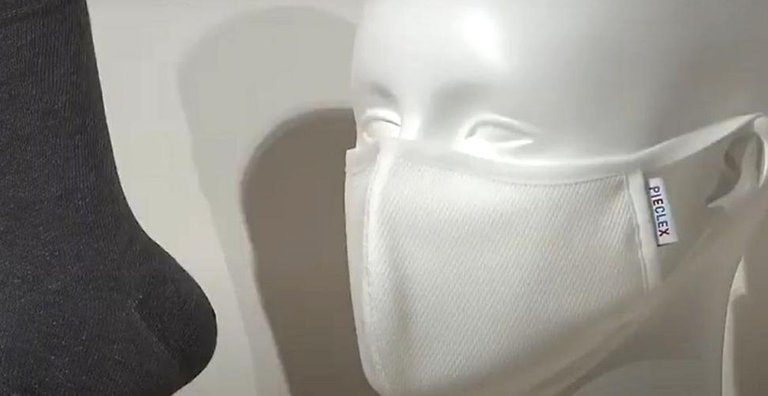An antimicrobial material created by two Japanese companies could kill viruses and microbes, including bacteria. Created by the Japanese companies Murata Manufacturing and Teijin Frontier, the fabric can instantly inactivate microorganisms inside and on its surface. The fabric could be used for various purposes, from controlling unpleasant odors to creating protective masks.
They name it 'PIECLEX'

The material uses kinetic energy from a person's normal movements to generate low levels of electricity that prevent the reproduction of microorganisms, company representatives said. The electricity produced is quite small, so it is not felt by the human body.
A spokesman for Murata Manufacturing said:
It was effective on 99.9% of the bacteria and viruses we tested, acting to stop them from spreading or to inactivate them.
Popular Mechanics writes:
The discovery is not accompanied by a scientific article in a reputable journal, so the success announced by the two Japanese companies must be viewed with a dose of skepticism.
Globally, many companies are making efforts to use textile engineering to prevent COVID-19, but developing effective products is a long process.
Why is it difficult to develop a fabric that stops viruses and bacteria!
A biologically and chemically protective material, such as PIECLEX, is difficult to manufacture, not necessarily because of the technology, but because of the lack of access to bacteria and viruses to be tested. Access to samples of SARS-CoV-2, the coronavirus that causes COVID-19, is difficult to obtain, given the danger posed by this virus.
According to a 2001 study in the Reactive coatings literature review, studies of antimicrobial textiles generally rely on surrogates or analogues to test their effectiveness. A species of black pigment bacteria called 'Bacillus Globigii', is used as an analogue for mustard gas, for example. This raised questions about the effectiveness of the fabric against real biological or chemical threats that scientists set out to combat.
Another limitation is related to biocides created for textiles that can induce bacterial resistance to these substances, as shown by a research published in 2017 in Principles of Textile Finishing.
It remains to be seen whether PIECLEX is really useful against viruses, bacteria and other types of microbes.
I hope you have enjoyed reading this post and stay tuned for more posts like this one. I wish you a great day.